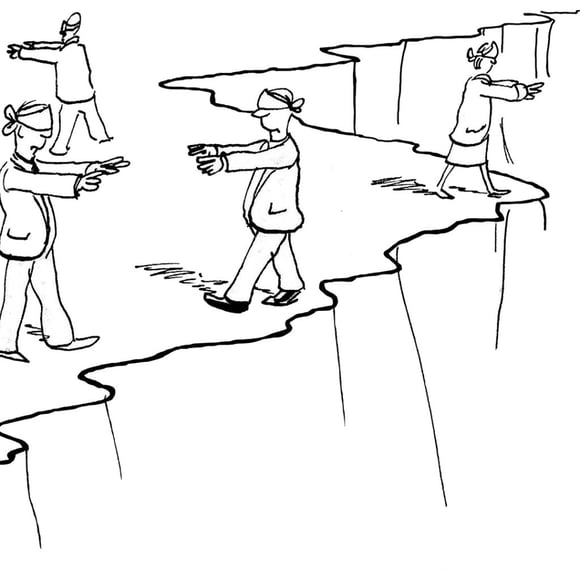As an entrepreneur, your “why” usually stays the same, even across multiple businesses. The “how” is different, and the “what” is drastically different. But whether it’s a dumpster company, or a cigar bar, or a marketing company, my “why” has always been to help people. As an entrepreneur, I never made the connection that the “why” carried through until I watched this TED talk from leadership expert Simon Sinek.
Simon Sinek’s TED talk, in short, discusses the “golden circle” (shown below), a process that leaders use and should continue to use to guide how they lead and how they market themselves and their projects.

Aaron Vandergalien, one of Deksia’s founding partners and an entrepreneur in his own right, is one of many at our company who are focused on the “why” of Deksia every day. To him, realizing that helping people was our key value allowed him and the other owners to position that value almost as one of our Big Ideas we develop for our clients. The difference is, a Big Idea is focused on a company’s culture and goals as a whole — more of the “how,” if you will — whereas the “why” of the company is more specific to leadership.

For example, our “why” is that we want to help people. Our “how” is our Big Idea: business intelligence and award-winning creative. Our “what” is branding and marketing services. It’s essential that these pieces walk hand-in-hand within a company, but as Aaron says, “Not everybody at your organization has to buy into the ‘why’”:
Don’t get me wrong. I think it’s so important that the values of the company are based on the “why.” And people should definitely have to buy into the “how.” When it comes to hiring, you don’t want people in your organization that act in a way that is contradictory to your “why.” It wouldn’t be a good cultural fit. But the “why” is more of a cultural question, and it’s simply more nuanced than some of your employees are going to understand. The “how” is more about the brand, and is something everyone should get.
When it’s all about helping people, that “why” bleeds into supporting whole communities, both our internal community and our various external communities. Like so many other leaders, Aaron sees this in the individual client cases:
When we take a small business owner and help her with her frustrations trying to understand the marketing space, we’re helping her personally. Then if she’s successful, she’s able to hire more employees, which helps their families, and helps their community. As success stretches and spreads out, it creates more success for those within proximity.
His final thoughts on the “why” are hopeful for those who might be uncertain of their own business’s purpose:
I think sometimes people are uncertain of their “why.” If they think it’s one thing when it turns out it’s something else, it can create frustration for the business owner and the process starts to feel like a waste of time. That’s very common. That’s when people get into company values and mission statements, and they start to think it’s all about smoke and mirrors and illusion. What I would say to those people is the reason you feel that way is because you haven’t gone through the correct process. When you do it right, you can’t help but be excited about it.

Every business owner can benefit from examining their own business based on this model. It can be a daunting proposition, but even as a business owner, considering your business through the lens of this diagram helps you refocus and truly consider your “why.”



